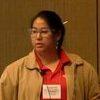Establishment of a blackhead challenge model using nitarsone as a reference treatment
Blackhead, also known as histomoniasis, is a problem the turkey industry and broiler breeders are currently facing. This disease, caused by Histomonas meleagridis, has been recently known to cause up to 80% mortality within turkey flocks. There are no approved treatments currently on the market, with the last (the arsenic-based antiprotozoal drug nitarsone) voluntarily removed from the market in 2015. Because nitarsone was apparently effective against blackhead, some have considered nitarsone as a potential reference treatment for evaluation of new potential compounds for prevention of blackhead. This pilot study aimed to elucidate a challenge model based on efficacy against nitarsone to be used in blackhead disease models for future evaluation of prophylactic compounds. Groups included negative control, positive challenge control, and dietary inclusion of 0.01% nitarsone treatments. Twenty-three DOH turkey hens were allocated per pen, with four replicate pens per treatment. At 14 days-of-age, turkeys were challenged with 105 virulent H. meleagridis cells intracloacally. During the challenge phase, all mortalities were weighed, necropsied, and lesion scored. Surviving turkeys were terminated 14 days-post-challenge for final lesion scores and body weights. Mortality data were analyzed using the chi-square test of independence testing all possible combinations, while all other data were analyzed using ANOVA with post-hoc Tukey’s HSD. Significant differences were reported at p≤0.05. Nitarsone treatment had significantly lower mortalities, liver lesion, and cecal lesion scores compared to the positive-challenge control turkeys (reaching levels comparable to the non-challenged negative controls). Based on the results of this trial, the challenge dose of 105 H. meleagridis cells per turkey was appropriate for direct challenge, with the nitarsone reference treatment able to effectively control disease incidence.
Key Words: Blackhead, Histomoniasis, Histomonas, Nitarsone, Turkey.
Poster presented at the International Poultry Scientific Forum during IPPE 2020.






















